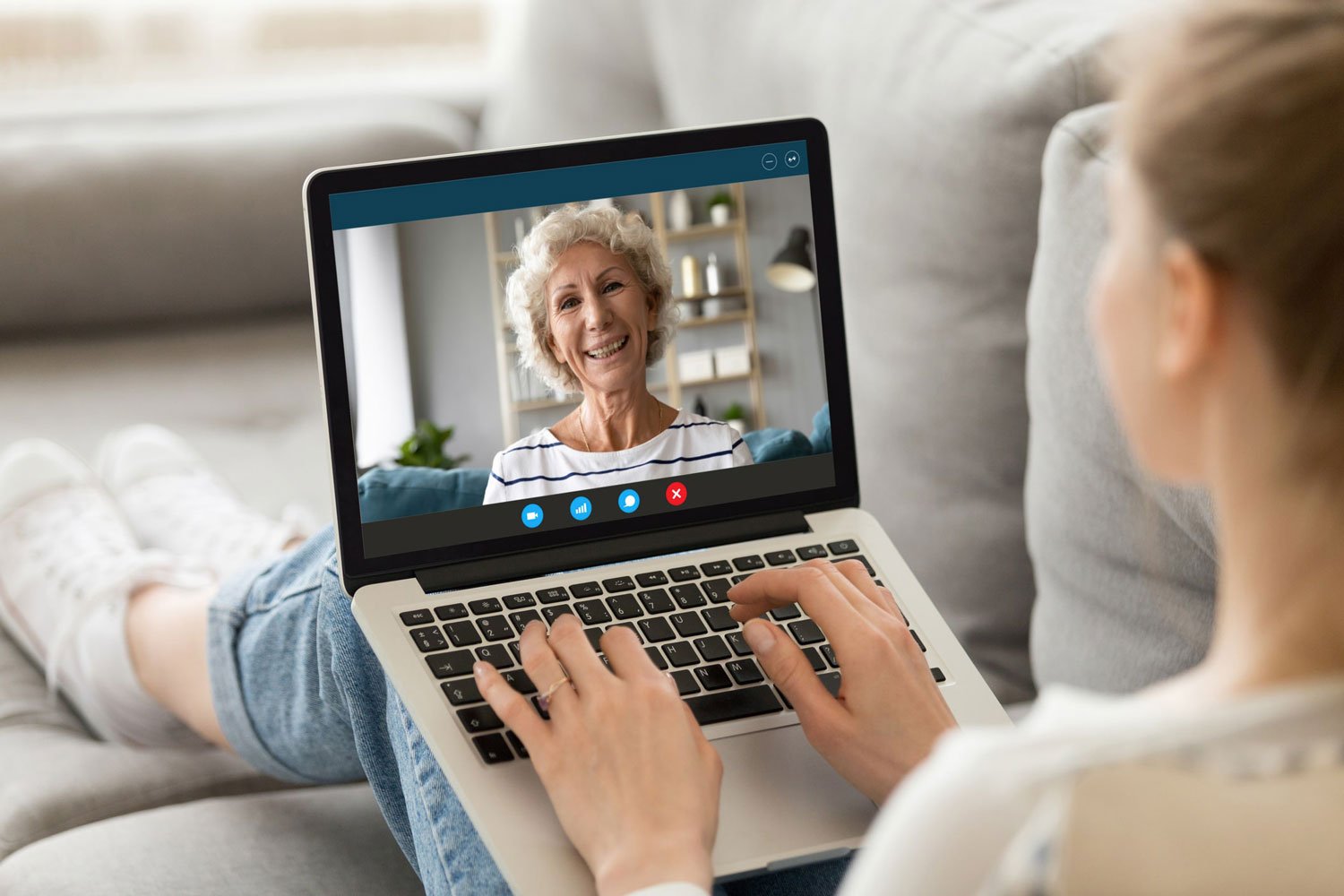Caregiving 101: Tips for New Caregivers
5 Tips for Providing Supportive Long-Distance Caregiving
5 Tips for Providing Supportive Long-Distance Caregiving
Distance doesn't determine whether you can take an active role in supporting the people you love. Proximity isn't required to provide emotional support or to offer financial help like paying bills and balancing accounts. You might also arrange in-home care for aging parents or provide a periodic break for the primary caregiver. Even though you can't necessarily take on the day-to-day, hands-on care you would if you lived nearby, you could still make a difference. Millions of Americans are doing just that every day. Among the 34 million people in the United States who provide care for loved ones, only 85 percent or so live close by their charges, according to Health in Aging. About 15 percent are long-distance caregivers, or caregivers who live an hour or more away from the people they care for. There are challenges that come with long-distance caregiving, whether it's for aging parents, siblings, or friends. These five tips can help you better navigate the road ahead to provide the best possible care for the people you love, no matter how many miles apart you might be.Build a Caregiving Team
If there's already a primary caregiver in place, talk to that person to find out how you can best be of service. If you're starting from the beginning, build a team of people to work together to reach the goal of providing the best care. Although there are plenty of ways to support loved ones from afar, you can't go it alone. Working closely with your loved one's doctors is one part of the equation. You should also reach out to friends and family who are local and consider community groups if you need more help, or designate a primary caregiver who lives close to the care recipient.Arrange Access to Information
To provide effective care, you're going to need to be able to speak with doctors and other professionals. Obtain the necessary forms and paperwork and have your loved one sign them as needed to give medical professionals and insurance companies permission to share information with you. It's helpful to arrange for one member of the team to be the point person – with a backup if needed – for information. That person is tasked with making sure everyone else on the team knows what's going on.Create and Maintain Shared Care Plans
Distance doesn’t have to leave you out of the loop. Work with your loved one’s local care team to create written daily care plans that detail routines, tasks, and schedules that you can leave with your loved one for in-home and substitute caregivers. Keep a copy for yourself too so you can stay on top of what’s going on and make sure everything’s running smoothly. Additionally, it helps to keep a list of medications and dosages, contact information for your loved one's health professionals, and an outline of the plan for on-site caregiver roles and responsibilities.Plan Your Visits
It can be overwhelming to visit loved ones if you feel like there's a lot to accomplish in a limited time. Plans let you use your time efficiently. Start by checking with the primary caregiver and other members of your care team who are more hands-on to see where they could use help. This is also a good opportunity to determine if there's more help needed and to watch for signs of abuse, which include unexplained injuries, appearing poorly fed or groomed, and financial missteps. Don't forget to set aside time to have some fun together. Playing games, reminiscing, taking walks together are all fun ways to spend time with your loved one outside of caregiving. It also gives you a chance to gauge how well the care recipient is doing as you observe him or her.Manage Caregiver Guilt
Caring for a parent or loved one from afar isn't always easy. Long-distance caregivers can often feel guilty, thinking they're not doing enough to participate in the care of the recipient. If you find yourself struggling, remind yourself that you're doing your best. Also, consider joining a support group to get tips from others in similar situations. Additionally, regularly checking-in with your loved one can help you better identify his or her needs, coordinate resources, and feel more connected.
Sources:
Kimberly-Clark US makes no warranties or representations regarding the completeness or accuracy of the information. This information should be used only as a guide and should not be relied upon as a substitute for professional medical or other health professional advice.

